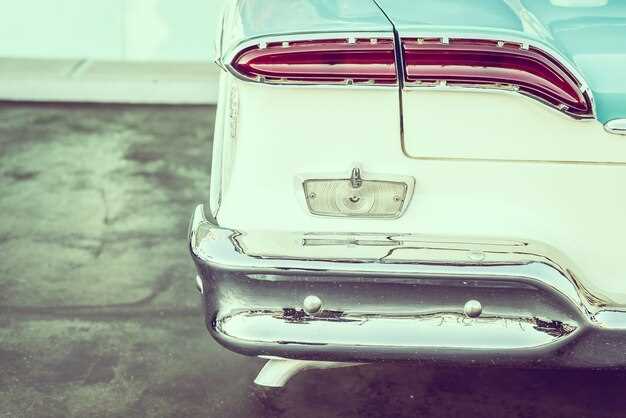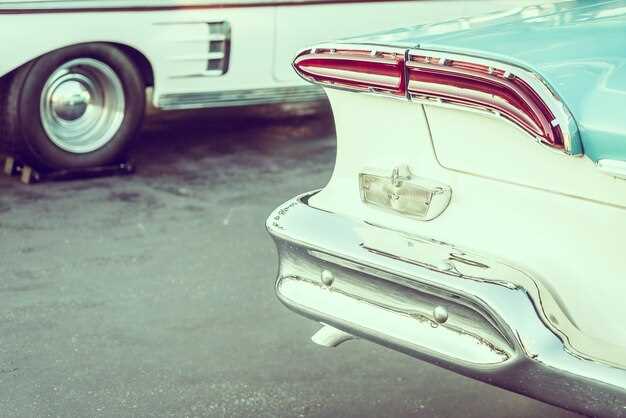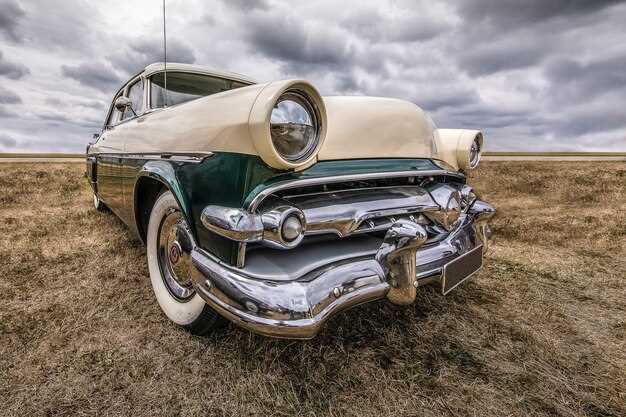
Classic cars hold a unique place in the hearts of automotive enthusiasts. These vehicles are not merely modes of transportation; they are embodiments of history, craftsmanship, and personal memories. However, to maintain their charm and functionality, regular tune-ups are essential. These maintenance procedures ensure that classic cars remain in optimal condition, enhancing both their performance and longevity.
Over time, classic cars are subject to wear and tear, which can lead to a myriad of mechanical issues. Regular tune-ups help identify and rectify these issues before they escalate into costly repairs. During a tune-up, various components such as the ignition system, fuel system, and engine timing are thoroughly inspected and adjusted. This proactive approach not only elevates the driving experience but also preserves the vehicle’s value.
Additionally, classic cars often rely on outdated technology, which may not be as forgiving as modern automotive systems. Components like carburetors, distributor caps, and spark plugs require vigilant attention to function optimally. By committing to regular tune-ups, owners can ensure that these essential systems perform at their best, ultimately contributing to safer and more enjoyable drives.
In conclusion, regular tune-ups are crucial for maintaining the integrity of classic cars. They safeguard against potential failures, enhance performance, and uphold the car’s historical significance. For collectors and enthusiasts alike, investing in a consistent maintenance routine is not just a smart choice; it is a necessary commitment to preserving a piece of automotive heritage.
Identifying Common Issues Before They Escalate

Regular maintenance of classic cars is essential for preventing issues that can arise over time. Many problems, if left unchecked, can lead to costly repairs or irreversible damage. One common issue is rust, which can start as small spots and, if ignored, can spread extensively. Regular inspections allow owners to identify these early signs, enabling timely treatment and prevention.
Another area of concern is the condition of the engine. Classic car engines can suffer from oil leaks or improper lubrication, leading to severe damage or complete engine failure. Routine tune-ups and checks ensure that all parts are functioning correctly, allowing you to spot abnormal noises or performance drops that might indicate underlying issues.
Electrical systems in classic cars often face challenges due to aging wiring and components. A failing battery or faulty electrical connections can lead to starting issues or even safety hazards. By routinely checking the electrical systems, owners can replace worn-out parts before they cause breakdowns or malfunctions.
Additionally, the braking system is crucial for safety. Worn brake pads or low fluid levels can compromise performance. Regular assessments of the braking system help in identifying these issues early, ensuring that the vehicle remains safe to drive.
In summary, regular tune-ups are not merely preventative measures but proactive steps in identifying and addressing common issues before they escalate. This approach helps maintain the longevity of classic cars, enhances safety, and preserves their value over time.
Maintaining Authenticity and Value Through Proper Care

Classic cars represent a significant investment, both emotionally and financially. Preserving their authenticity and value requires a commitment to meticulous care and attention. Regular maintenance, particularly tune-ups, plays a crucial role in this process.
One of the primary benefits of regular tune-ups is the preservation of original components. Classic vehicles often feature unique parts that contribute to their historical significance. By ensuring that these components function properly, owners can maintain the vehicle’s originality, which is essential for collectors and enthusiasts. Replacement of parts with non-original substitutes can diminish the car’s value, so maintenance should prioritize authentic replacements when necessary.
Moreover, proper care extends the lifespan of the vehicle, increasing its market value. A well-maintained classic car not only performs better but also captivates potential buyers. Documentation of regular service, including tune-ups, works as proof of care, further enhancing the car’s appeal. Collectors often seek vehicles with comprehensive maintenance records, as this indicates reliability and a commitment to preservation.
Additionally, routine maintenance helps identify and address potential issues before they escalate into costly repairs. A small problem, if unnoticed, can lead to significant damage, jeopardizing the car’s integrity. Regular tune-ups allow mechanics to assess the vehicle’s overall health, ensuring it remains in peak condition.
Lastly, attention to detail in maintenance activities helps uphold the car’s aesthetic appeal. Cleaning, polishing, and maintaining finishes not only protect the surface but also enhance the vehicle’s visual integrity. A classic car that looks pristine is more likely to attract enthusiasts and fetch a higher resale price.
In summary, maintaining authenticity and value through proper care is essential for classic car owners. Regular tune-ups, attention to original parts, comprehensive documentation, proactive repairs, and aesthetic maintenance all contribute to preserving the car’s legacy and enhancing its worth in the long run.
Enhancing Performance and Driving Experience with Regular Maintenance
Regular maintenance is crucial for classic cars, not only to preserve their value but also to enhance performance and driving experience. Over time, components can wear out or degrade, leading to a noticeable decline in the vehicle’s functionality. Routine inspections and servicing can significantly mitigate these issues.
Engine Optimization: One of the primary benefits of regular maintenance is the optimization of the engine’s performance. Regular oil changes and filter replacements ensure that the engine runs smoothly, reducing friction and wear. This not only increases horsepower but also improves fuel efficiency, which is especially important for classic cars that may have outdated engines.
Handling and Safety: Classic cars often come equipped with older suspension systems, which can become less effective over time. Regular maintenance allows for the examination and replacement of worn suspension components, directly affecting handling and safety. A well-maintained suspension system enhances road grip and stability, making the driving experience more enjoyable and secure.
Tire Care: Tires are another critical aspect of performance. Regularly checking tire pressure and tread depth ensures optimal traction and prevents uneven wear. Proper alignment and balancing contribute to a smoother ride and longer tire life, allowing drivers to enjoy the full capabilities of their classic vehicles.
Braking System Efficiency: The braking system is vital for any vehicle, especially classic cars that may have outdated technology. Routine inspections of brakes, including pads, rotors, and fluid levels, are essential for preventing brake fade and ensuring responsive stopping power. A reliable braking system enhances confidence while driving and significantly improves overall safety.
Preservation of Aesthetic Appeal: Regular maintenance extends beyond mechanical performance; it also preserves the aesthetic appeal of classic cars. Keeping the exterior and interior in good condition not only enhances the driving experience but also maintains the car’s market value. A clean, well-maintained vehicle attracts admiration, making every drive more enjoyable.
In conclusion, regular maintenance is indispensable for ensuring that classic cars perform at their best and provide an enjoyable driving experience. By committing to a maintenance schedule, owners can enhance engine performance, improve safety, and preserve their vehicle’s beauty, ensuring that it continues to be a joy to drive for years to come.
